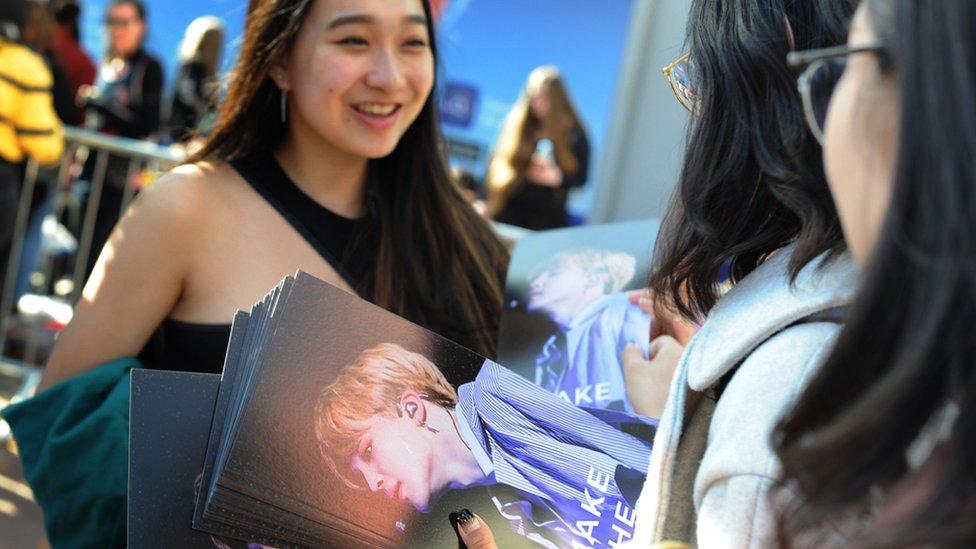K-pop and Latin: Why the time is now for foreign language hits
- Published

Justin Bieber, Beyonce, Cardi B and BTS have all had bilingual UK chart hits
At a time of Brexit and divisive world politics, something has happened with the UK chart.
While other European countries and America have traditionally been more open to music in languages other than their own, the British charts have been fairly resistant to anything not in English.
Until now.
Following the 2017 global success of Despacito there seems to have been - with a little help from Justin Bieber - a sea change.
Since then Little Mix, Cardi B and DJ Snake are just some of the acts to have charted with music either partially, or entirely, in Spanish.
Allow YouTube content?
This article contains content provided by Google YouTube. We ask for your permission before anything is loaded, as they may be using cookies and other technologies. You may want to read Google’s cookie policy, external and privacy policy, external before accepting. To view this content choose ‘accept and continue’.
And it's not only Latin stars, but K-pop artists who are jumping in on the act too - with boyband BTS sweeping awards shows, achieving two number one albums on the US Billboard chart, and selling out London's O2 last month.
Since then Dua Lipa has collaborated with South Korean supergroup Blackpink, and the Black Eyed Peas have joined forces with K-pop's self-proclaimed "baddest female", CL.
So why have the British begun to embrace music in foreign languages?
"Looking back through history, we generally only see foreign language songs as being one-off novelties like Las Ketchup," says James Masterton, author of the website Chart Watch UK.
"Nothing really ever started a trend. Yes, Julio Iglesias and La Bamba topped the charts with Spanish language hits but they were always one-offs."
Nena's 1984 hit, 99 Red Balloons, was a hit in the US in German - but had to be translated into English before it was released in the UK: "Almost as if Britain was considered too insular for it to be a hit in a foreign language," remarks Masterton.
So what's behind the shift?
Sebastian Krys - a five-time Grammy award-winning record producer, who has worked with the likes of Shakira, Luis Fonsi, Gloria Estefan and Ricky Martin - says technology has a large role to play.

Luis Fonsi and Daddy Yankee performed Despacito at this year's Grammys entirely in Spanish, following the success of the remix featuring Justin Bieber
"I think Spotify and YouTube have a lot to do with what's going on. Before, music was curated by the record industry gatekeepers, who were generally middle class, middle-aged white men. And now it's curated by the masses," says the Argentine, now based in LA.
Masterton agrees: "Artists aren't restricted to releasing things to certain territories at certain times. As consumers there is no barrier to consumption."
This one-size-fits-all policy on release dates means we are seeing music released in one language - rather than localised versions for different markets.
"But we're still seeing that, generally, to have an international success you have to have some English," he adds.
Krys says cultural migration has also had an impact: "You have about 15 million Spanish-speaking people in [the USA]. Everything about the culture starts shifting: it starts with food and then TV and other mediums.
"We now have a Latin actress as the highest paid on US TV," he says of the Colombian Modern Family star, Sofia Vergara.
"It permeates into the culture of what people think they should look like and what they should sound like. And the same thing is happening now for the Asian community with [the film] Crazy Rich Asians."

Ricky Martin spent three weeks at number one with Livin' La Vida Loca in 1999
Krys says there is a real difference between what is happening now compared to the crossover careers of earlier stars: "In the early 2000s you had Latin artists, who were singing English pop songs - like Ricky Martin. They had a flavour of something Latin about them.
"But now artists are doing music that is rooted in the Latin culture - they are not having to make compromises.
"There is more interest now in what other people and cultures are doing," he says. "For a long time most pop music has been rooted in blues and R 'n' B, but you get tired of music all sounding the same. I think people that create music, whether it's K-pop or Latin music, are giving audiences something new, but which still sounds familiar."
Is Mi Gente the new Despacito?
Despacito breaks global streaming record
Kent Jones on his multi-lingual smash hit Don't Mind
Hannah Waitt, co-founder of K-pop news and entertainment website moonRok, says the huge popularity in Latin music is understandable given the large Spanish-speaking diaspora around the world - but calls the rise in Korean music "a little more mystifying".
She puts its success down to its heavily borrowed Western pop sound, which she says has been "carefully manufactured and re-exported to the Western hemisphere with more English mixed into the lyrics".
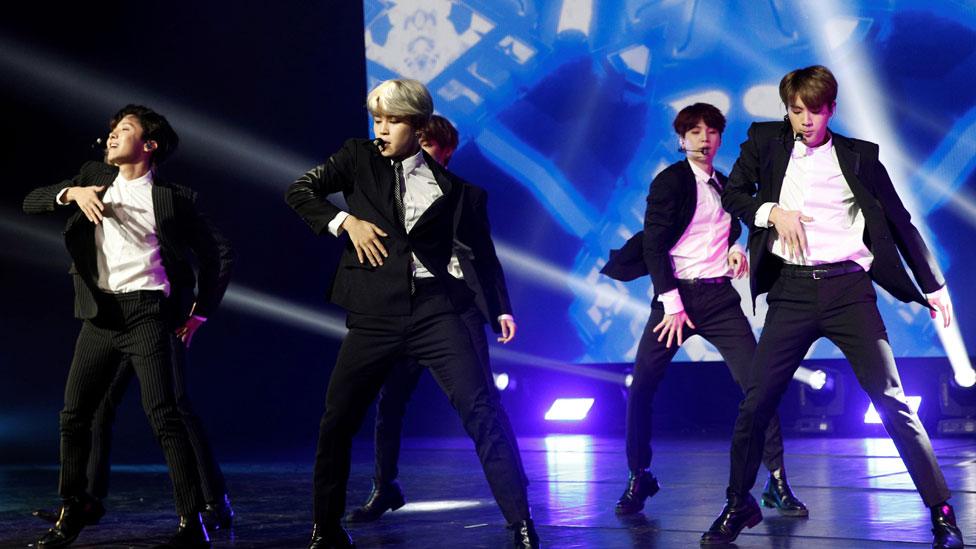
BTS are filling the gap left by One Direction and Fifth Harmony, says Hannah Waitt
"K-pop has also filled a huge gap in the market for groups," says Waitt. "With Fifth Harmony and One Direction gone, there's no one really stepping in to give us that group dynamic, which I think young people want.
"K-pop almost feels like the second coming of the girl group and boy band renaissance that was started by the Spice Girls, N'Sync, and Backstreet Boys."
She says it helps that Korean artists give fans "gratuitous access" to their personal lives via social media and reality TV shows.
"Whereas many Western celebrities go to great lengths to protect their privacy, Korean celebrities let fans into their homes, their studios, and even their cars to give fans a closer look at their day-to-day lives. This sort of access fosters a more intimate relationship between the fans and the artist, which results in intense fan loyalty."
"Genres are disappearing and language has taken a backseat to the music," Waitt adds.
Masterton agrees, saying: "With BTS there is no real concession to English. Younger generations don't care what the language is, it's just the vibe of it and the feel of it that they like."
He also sees it as a way for artists like Beyonce, who features on Mi Gente with J Balvin and Willy William, to freshen up their sound: "Anything that gives your record a bit of an edge and makes it sound different - as well as making it appeal across different countries is bound to be good."
Perhaps this is the real reason the music industry seems suddenly so eager to embrace bilingual hits.
Which record company wouldn't want to conduct a mutually beneficial cultural exchange - introducing, for example, Dua Lipa to the Korean market and giving her immediate cachet by associating her with an already domestically successful artist? And likewise for Blackpink to the UK market.
Allow X content?
This article contains content provided by X. We ask for your permission before anything is loaded, as they may be using cookies and other technologies. You may want to read X’s cookie policy, external and privacy policy, external before accepting. To view this content choose ‘accept and continue’.
Krys concedes there is an element of this going on, but says it's not the most important aspect in the change we've seen: "You go back to Julio Iglesias and Willie Nelson - there are always people wanting to break into new markets. But I think these young artists want a new sound and want to collaborate."
Waitt calls it a "cynical" way to view things, saying: "I prefer to look at it as an incredible opportunity for the biggest artists in the world to create music that reflects the multi-lingual world that we live in."
BTS management apologise for 'Nazi' photos
What do non-Koreans love about K-pop?
How to be the perfect K-pop fan
And what of K-pop - is it just a flash in the pan that will come and go?
Waitt says: "Every time I think K-pop is going to plateau or peter out, a new group comes along and takes the genre to a new level. I think K-pop is here to stay - it will always have a core fan base of young people that care enough to buy tickets and stream the songs."
All three say they see this cultural phenomenon as a good thing.
Krys says: "Where some people think artists are appropriating a culture, I think it actually opens up the cultural dialogue.
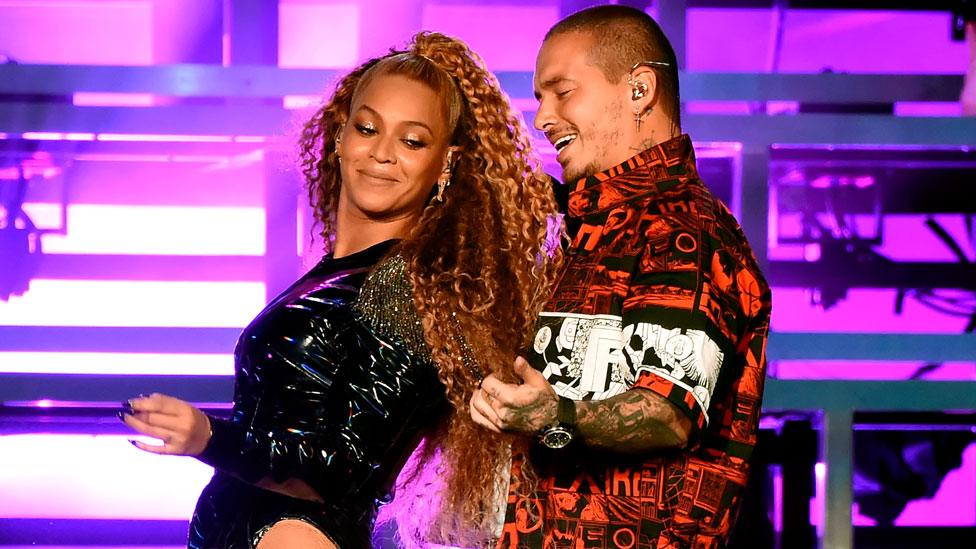
Beyonce and J Balvin perform their global hit Mi Gente at Coachella earlier this year
"Living in the US right now, on this very polarised planet, it's very weird to see songs like Mi Gente and Despacito be number one. I don't think it can be a bad thing to have positive cultural models like these.
"We're not all rapists and murderers," he remarks, referring to President Trump's 2016 election campaign. "We're musicians and artists and doctors and normal people."
Masterton sees it as beneficial that acts don't have to "dilute" their own culture to be successful in another country.
"And you know what," he adds, "the number of teens that might know a phrase or two in Korean is also likely to be far higher than previously - which can only be a good thing!"

Follow us on Facebook, external, on Twitter @BBCNewsEnts, external, or on Instagram at bbcnewsents, external. If you have a story suggestion email entertainment.news@bbc.co.uk, external.

- Published14 November 2018
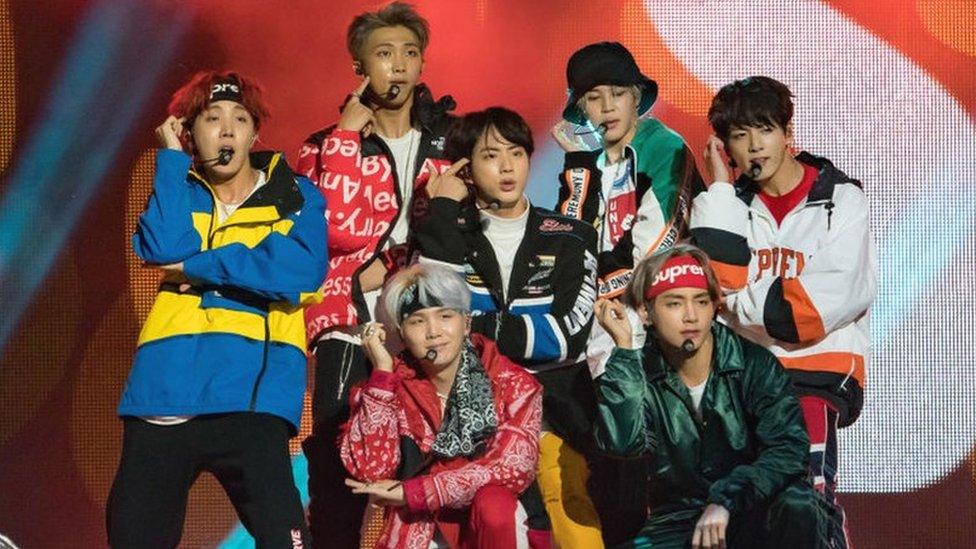
- Published14 August 2017
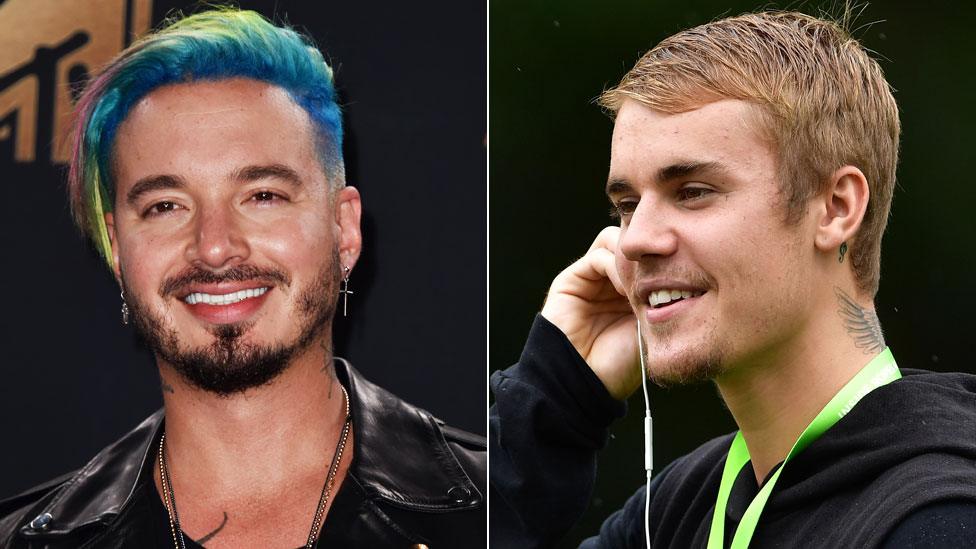
- Published25 October 2018
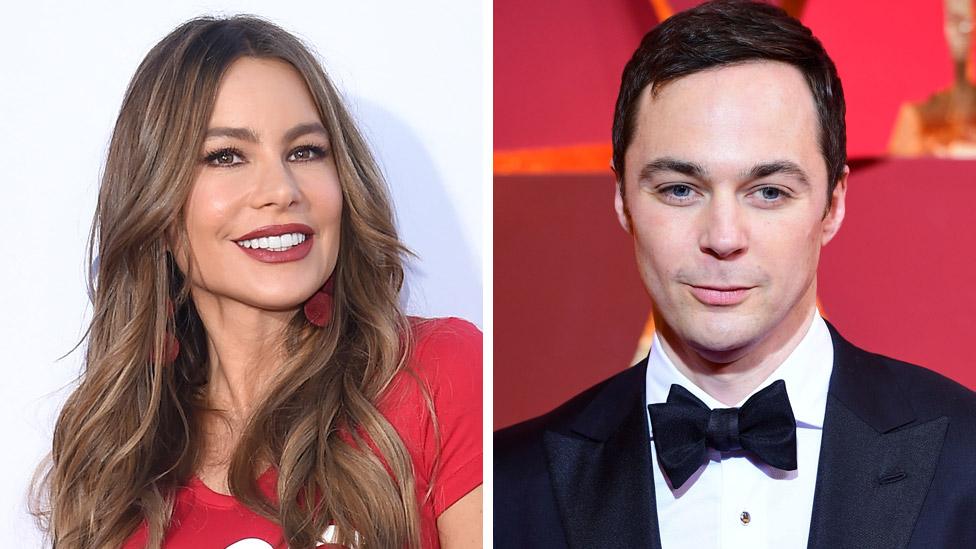
- Published9 October 2018
